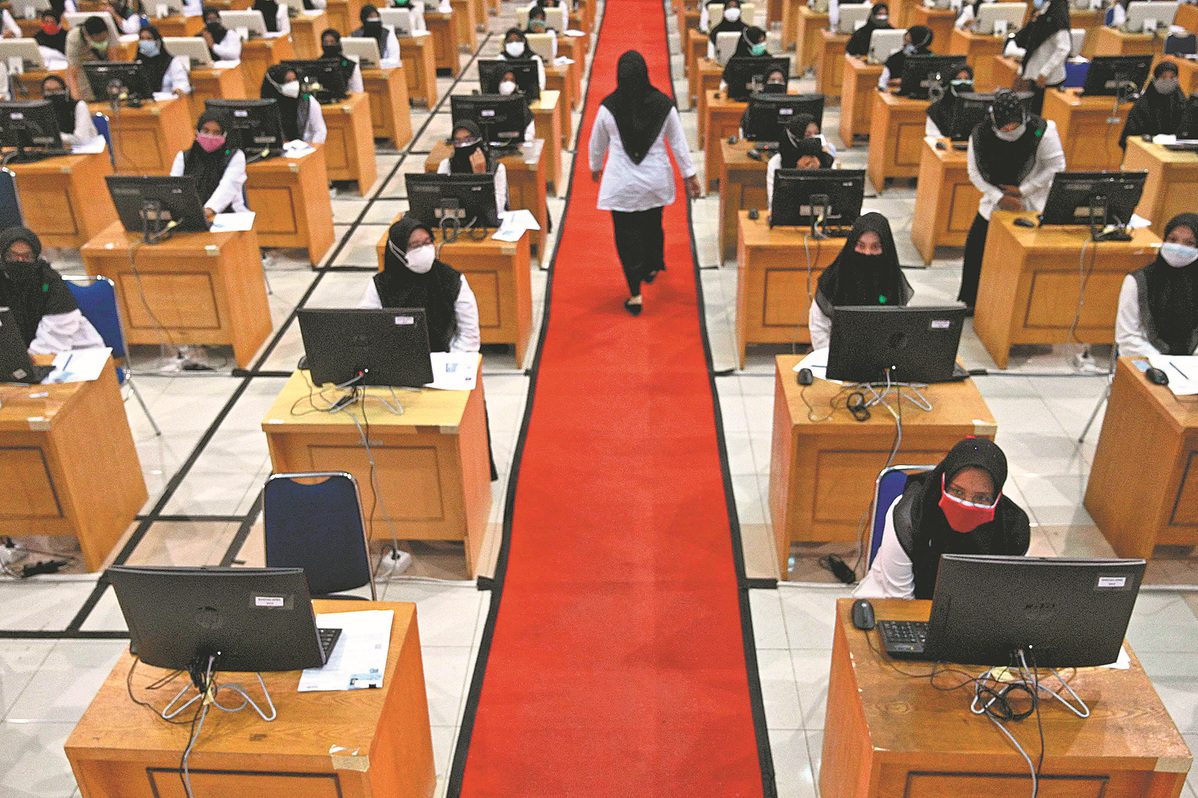Skills mismatch, tech disconnect hit youngsters
Updated: 2024-07-02 09:50

Almost 10 million Indonesians of Generation Z, which includes those born in the late 1990s and first decade of this century, are unemployed and not enrolled in education or training, according to statistical agency Statistics Indonesia.
About 5.72 million women and 4.16 million men find themselves in such a state of limbo, which experts said could push some of them into crime to make ends meet.
University of Indonesia demographer Dewa Wisana has identified some of the challenges these young Indonesians encounter that contribute to their plight and cause many to remain inactive.
The first of these, he noted, was the structural transition from a manufacturing-based economy to one dominated by the service sector.
Second, many of the young Indonesians have struggled to enter the workforce due to unpredictable events including the COVID-19 pandemic.
Third, there was a growing demand for qualifications that they often failed to bring to the job market.
"Many business sectors, particularly service-oriented ones, rely heavily on technological expertise. Unfortunately, a significant number of individuals struggle to acquire proficiency in these particular skills and technologies," Dewa said.
"For instance, if we look at workplaces, they are starting to demand that people have computer skills including coding, data analytics and internet use... People are using the internet of things, because the business world has moved toward automation. Yet, not all Gen Zers have mastered this."
Dewa added that a shortage of soft skills, including basic tasks such as presenting and communicating within teams, further eroded the young Indonesians' employability.
A gap in leadership, presentation and communication is problematic considering that they typically have to work together in teams, he said.
Their socioeconomic status sometimes keeps the young Indonesians from developing skills, including soft skills, Dewa said.
"Some have privileges, some have access to superior education, technology, etc, others don't, and some are far from the business centers — the job offers aren't that great," he said.
According to Eko Listiyanto of the Institute for Development of Economics and Finance, industrial sectors were growing too slowly, leaving a large number of the young Indonesians unemployed.
This is exacerbated by what is seen as a lack of vocational training, with employee training a costly undertaking that many businesses skimp on and they are particularly reluctant to train Gen Z staff because they see them as too prone to changing jobs.
When the economy is only slowly growing, like it is now, businesses may not always want to take on inexperienced staff because of costs, such as in the form of recruitment costs, Eko said.
He said businesses, the central government and regional governments should all be involved in training. Those who live far from business and industry hubs should be able to get the training they need to achieve the skills the market requires.
Since Gen Z members are fast learners, especially if they are digital natives, they offer real, new opportunities that businesses currently may not be aware of, Eko said.
The Indonesian government is working to help Gen Z members find employment, said Susiwijono Moegiarso, secretary of the Office of the Coordinating Economic Minister.
Several programs have been launched to encourage investments in sectors that "require a lot of labor. We have implemented an upskilling and reskilling program", Susiwijono said.
"There are various instruments available in different countries, such as the ones offered by us and Singapore. We have a long list of tasks ahead of us, with numerous projects that can be tackled," Susiwijono said.
THE JAKARTA POST
























